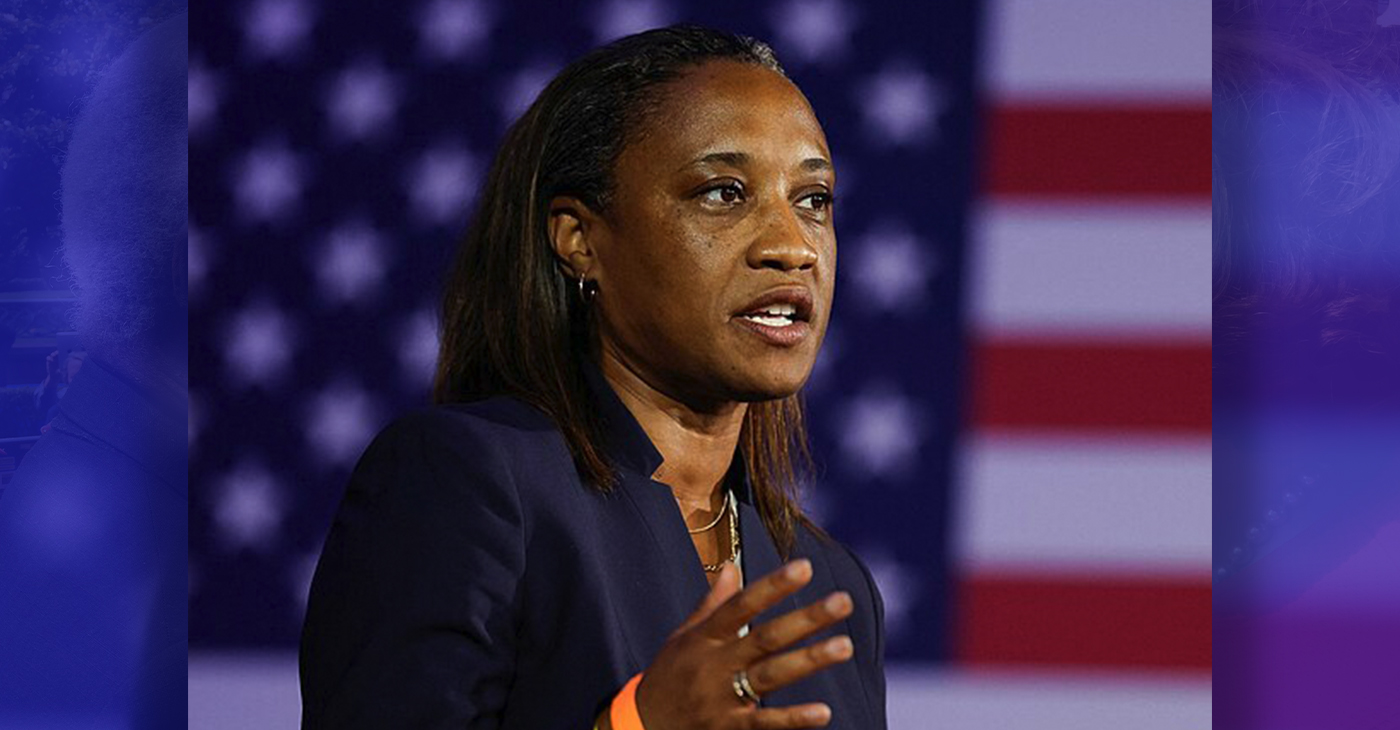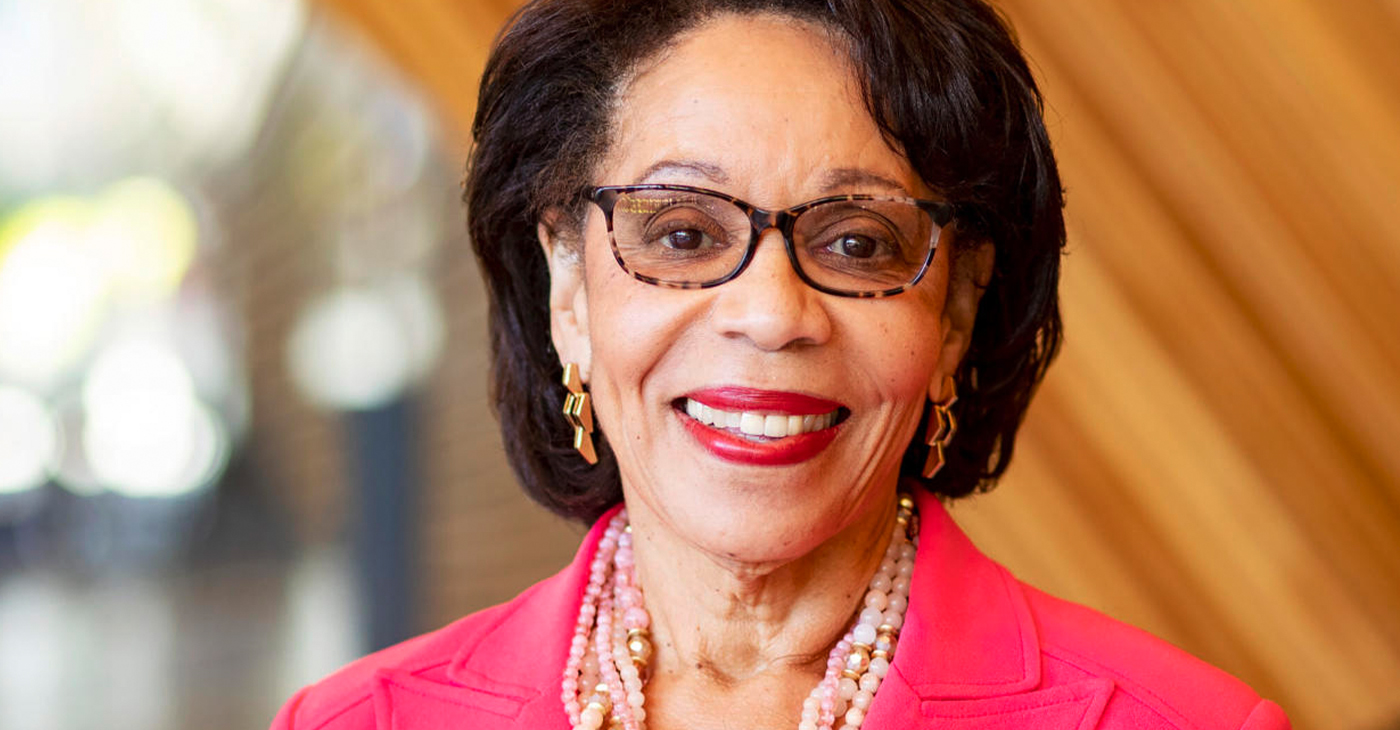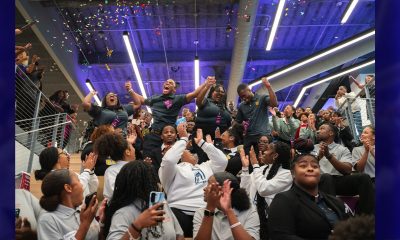HBCU
A Series On Health Equity: The Black Church and HBCUs
NEW JOURNAL AND GUIDE — A new minority health initiative sponsored by Providential Credit Care Management, Inc./KareVan aims to educate, inform and impact health disparities among African Americans in the Hampton Roads area. It is in partnership with Norfolk State University Center of Excellence for Minority Health Disparities, Social Innovators Design Group, and the New Journal and Guide.
By New Journal and Guide
#1: Epilepsy and Seizure Disorders Among African-Americans
A new minority health initiative sponsored by Providential Credit Care Management, Inc./KareVan aims to educate, inform and impact health disparities among African Americans in the Hampton Roads area. It is in partnership with Norfolk State University Center of Excellence for Minority Health Disparities, Social Innovators Design Group, and the New Journal and Guide.

Dr. Steve Owens, Vice President of Programs and Services at the Epilepsy Foundation
On Saturday, April 20, Dr. Steve Owens, Senior Vice President, Programs and Services, Epilepsy Foundation, will be the guest speaker at the NSU Center of Excellence where he will address the topic of epilepsy.
The program is free and open to the public and will feature health policy experts and advocates as presenters.
The event is 9:00 a.m. to 1:00 p.m. with registration and a continental breakfast at 8:30 a.m. The Center is located in the Nursing Education Building on the NSU campus.
Following is an interview with Dr. Cynthia Burwell, who heads the NSU Center of Excellence.
Q1: Dr. Burwell, please tell us about the Center of Excellence at Norfolk State University? And what and how does it relate to the importance of health equity?
A1: The Center of Excellence for Minority Health Disparities was developed five years ago as one of Norfolk State University’s strategic initiatives in its Six Year Strategic Plan to help promote health equity and eliminate health disparities. Using the Community-Based Participation Research model, this work includes collaborative research and programming with various community-based health organizations across Hampton Roads and the Commonwealth of Virginia.
In support of The Center’s commitment to reducing health disparities in Hampton Roads and surrounding areas through research, service, and education, five primary strategic goals have been created. These goals focus on increasing The Center’s infrastructure and capacity to conduct research, engage communities, collaborate with key partners, and provide educational opportunities to communities of underserved, underrepresented, and minority populations. The Center is important to providing educational opportunities in order to help reduce health disparities.
Q2: What is the significance of our HBCU in the furtherance of improved Black Health?
A2: It is significant that HBCUs continue to provide the leadership needed in training students to become future healthcare providers. We know that there will be a shortage of minority healthcare professionals in the future and we need to be in the forefront in helping students become the next generation of healthcare professionals to help meet the needs of the community.
Q3: So what about epilepsy and seizure disorders that relate to overall health of African Americans, and why should we all gather at our “Communityveristy” NSU next Saturday morning, April 20? And please tell us about your involvement with Healthy Churches 2020.
A3: According to the literature many social factors have been identified as key drivers of epilepsy care, outcomes, and disparities, but there is a limited understanding of what these factors are and how they translate into disparities.
Key social determinants of health in epilepsy include socioeconomic status, race/ethnicity, age, and gender. For example, low socioeconomic status and minority status have been associated with a higher risk of epilepsy, more hospitalizations and emergency room visits (versus neurology services), and a lower rate of epilepsy surgery.
Such differences in care/treatment and outcomes translate into health disparities, many of which are considered unjust (inequitable) and modifiable through social action.
It’s important that we gather people from the community together to discuss these issues and educate members of the community about epilepsy.
The Center has been involved with the Healthy Churches 2020 conference through the establishment of the Health Churches Coalition of Hampton Roads. This has provided us with the opportunity to educate health ministry leaders about health issues that need to be improved in our community.
Q4: Dr. Steve Owens is the keynote speaker in the morning. Why are you so excited about having our esteemed brother and expert to be with us?
A4: Dr. Steve Owens is the Senior Vice President of Programs and Services with the Epilepsy Foundation, and he is going to be our keynote speaker at the “Faith and Fit. We are excited about him coming to help increase our knowledge about epilepsy, population health and health disparities.
Q5: How and why are community leaders and advocates like Sis. Barbara Wiggins so important in the work we do as Black health equity advocates so important?
A5: We are excited to have Sis. Barbara Wiggins on that same program so that she can share with us information about the valuable resources she and her colleagues can provide for the homeless in our community.
♦♦♦
This project is made possible in part by grant provided by the Epilepsy Foundation.
Please join on us for a prayer service and fellowship at Norfolk State University on April 20th at 9 a.m. We will come together to pray for the community, the sick and shut in, and for those who are living with various health challenges, including seizure disorders. Come and get the love, support and care you desire. Free and open to the community members.
A new minority health initiative sponsored by Providential Credit Care Management, Inc./KareVan aims to educate, inform and impact health disparities among African Americans in the Hampton Roads area. It is in partnership with Norfolk State University Center of Excellence for Minority Health Disparities, Social Innovators Design Group, and the New Journal and Guide.
On Saturday, April 20, Dr. Steve Owens, Senior Vice President, Programs and Services, Epilepsy Foundation, will be the guest speaker at the NSU Center of Excellence where he will address the topic of epilepsy.
The program is free and open to the public and will feature health policy experts and advocates as presenters.
The event is 9:00 a.m. to 1:00 p.m. with registration and a continental breakfast at 8:30 a.m. The Center is located in the Nursing Education Building on the NSU campus.
Following is an interview with Dr. Cynthia Burwell, who heads the NSU Center of Excellence.
Q1: Dr. Burwell, please tell us about the Center of Excellence at Norfolk State University? And what and how does it relate to the importance of health equity?
A1: The Center of Excellence for Minority Health Disparities was developed five years ago as one of Norfolk State University’s strategic initiatives in its Six Year Strategic Plan to help promote health equity and eliminate health disparities. Using the Community-Based Participation Research model, this work includes collaborative research and programming with various community-based health organizations across Hampton Roads and the Commonwealth of Virginia.
In support of The Center’s commitment to reducing health disparities in Hampton Roads and surrounding areas through research, service, and education, five primary strategic goals have been created. These goals focus on increasing The Center’s infrastructure and capacity to conduct research, engage communities, collaborate with key partners, and provide educational opportunities to communities of underserved, underrepresented, and minority populations. The Center is important to providing educational opportunities in order to help reduce health disparities.
Q2: What is the significance of our HBCU in the furtherance of improved Black Health?
A2: It is significant that HBCUs continue to provide the leadership needed in training students to become future healthcare providers. We know that there will be a shortage of minority healthcare professionals in the future and we need to be in the forefront in helping students become the next generation of healthcare professionals to help meet the needs of the community.
Q3: So what about epilepsy and seizure disorders that relate to overall health of African Americans, and why should we all gather at our “Communityveristy” NSU next Saturday morning, April 20? And please tell us about your involvement with Healthy Churches 2020.
A3: According to the literature many social factors have been identified as key drivers of epilepsy care, outcomes, and disparities, but there is a limited understanding of what these factors are and how they translate into disparities.
Key social determinants of health in epilepsy include socioeconomic status, race/ethnicity, age, and gender. For example, low socioeconomic status and minority status have been associated with a higher risk of epilepsy, more hospitalizations and emergency room visits (versus neurology services), and a lower rate of epilepsy surgery.
Such differences in care/treatment and outcomes translate into health disparities, many of which are considered unjust (inequitable) and modifiable through social action.
It’s important that we gather people from the community together to discuss these issues and educate members of the community about epilepsy.
The Center has been involved with the Healthy Churches 2020 conference through the establishment of the Health Churches Coalition of Hampton Roads. This has provided us with the opportunity to educate health ministry leaders about health issues that need to be improved in our community.
Q4: Dr. Steve Owens is the keynote speaker in the morning. Why are you so excited about having our esteemed brother and expert to be with us?
A4: Dr. Steve Owens is the Senior Vice President of Programs and Services with the Epilepsy Foundation, and he is going to be our keynote speaker at the “Faith and Fit. We are excited about him coming to help increase our knowledge about epilepsy, population health and health disparities.
Q5: How and why are community leaders and advocates like Sis. Barbara Wiggins so important in the work we do as Black health equity advocates so important?
A5: We are excited to have Sis. Barbara Wiggins on that same program so that she can share with us information about the valuable resources she and her colleagues can provide for the homeless in our community.
♦♦♦
This project is made possible in part by grant provided by the Epilepsy Foundation.
Please join on us for a prayer service and fellowship at Norfolk State University on April 20th at 9 a.m. We will come together to pray for the community, the sick and shut in, and for those who are living with various health challenges, including seizure disorders. Come and get the love, support and care you desire. Free and open to the community members.
This article originally appeared in the New Journal and Guide.
Community
Laphonza Butler Becomes California’s Newest U.S. Senator
Two days after California Gov. Gavin Newsom announced that Laphonza Butler would fill the U.S. Senate seat of the late Dianne Feinstein, the new senator was sworn in on Capitol Hill by U.S. Vice President Kamala Harris.

Replacing the Late Sen. Dianne Feinstein, Butler Becomes the 3rd Black Woman to Serve in Upper Chamber
By Lauren Victoria Burke,
NNPA Newswire contributor
Two days after California Gov. Gavin Newsom announced that Laphonza Butler would fill the U.S. Senate seat of the late Dianne Feinstein, the new senator was sworn in on Capitol Hill by U.S. Vice President Kamala Harris.
Flanked by Senate Majority Leader Chuck Schumer and California Sen. Alex Padilla as she took the oath, Butler than received a round of applause by senators of both parties.
After the swearing-in, President Joe Biden called Butler to congratulate her, the White House said.
“I am honored to accept Gov. Newsom’s nomination to be a U.S. Senator for a state I have long called home,” Butler said in a statement Monday. “I am humbled by the Governor’s trust. Sen. Dianne Feinstein’s leadership and legacy are immeasurable. I will do my best to honor her by devoting my time and energy to serving the people of California and the people of this great nation.”
She will be the third Black woman to serve in the U.S. Senate, preceded by Illinois’s Carol Mosely Braun, and current V.P. Kamala Harris. Butler is also the first openly lesbian Black U.S. senator: Her wife, Neneki Lee, held the Bible during Butler’s swearing-in.
Since 2021, Butler has been serving as the president of EMILY’s List. The fundraising platform supports and funds women candidates and amplifies issues that disproportionately impact women.
Before that she was involved in labor organizing, elected president of California’s largest union, Service Employees International Union (SEIU).
“As the president of SEIU 2015, Laphonza Butler led the fight for fair wages and respect for home care workers,” said Mary Kay Henry, current SEIU president, in a statement Monday. “As president of SEIU California, she was a driving force in winning the first statewide $15 an hour minimum wage in the nation. She has been a strong ally electing pro-women candidates as president of Emily’s List.”
Fellow California Sen. Alex Padilla also expressed strong support for Butler. “Throughout her career, Laphonza Butler has been a strong voice for working families, LGBTQ rights, and a champion for increasing women’s representation in politics. I’m honored to welcome her to the United States Senate,” Padilla wrote in a statement. “Governor Newsom’s swift action ensures that Californians maintain full representation in the Senate as we navigate a narrow Democratic majority. I look forward to working together to deliver for the people of California.”
Newsom’s decision was not on the political radar screen of most prognosticators.
With the selection of Butler, the decision by California’s Governor did not include any of the currently announced candidates for U.S. Senate in 2024 in California. Those current candidates include veteran members of Congress Barbara Lee and Adam Schiff and relative newcomer Katie Porter.
“As we mourn the enormous loss of Senator Feinstein, the very freedoms she fought for — reproductive freedom, equal protection, and safety from gun violence — have never been under greater assault. Laphonza will carry the baton left by Senator Feinstein, continue to break glass ceilings, and fight for all Californians in Washington, D.C.,” wrote Gov. Newsom in a statement released on the evening of October 1 announcing Butler’s appointment.
Butler will be the only Black woman in the Senate. But Delaware Congresswoman Lisa Blunt Rochester is expected to win the Senate seat vacated by Senator Tom Carper. Carper announced he would not run for re-election in 2024 and Rochester announced shortly afterwards that she would run for Carper’s seat.
Butler formally became another addition to the Congressional Black Caucus when she was welcomed with a swearing in by those members later on Tuesday.
Butler grew up in Magnolia, Miss., one of four siblings raised by a single mother. Her father, who suffered from heart disease, passed away when Butler was 16. She attended Jackson State University, an HBCU, graduating in 2001.
Community
Historic Black University: Multiple Suspects Sought After Shooting Incident at Morgan State University
Baltimore Police Commissioner Richard Worley and Morgan State University Police Chief Lance Hatcher told reporters that the incident happened around 9:25 p.m. when university police officers, on their regular patrol, detected gunfire from the campus. The victims, aged between 18 and 22, which include four men and a woman, sustained injuries that are reported to be non-life-threatening.

By Stacy M. Brown
NNPA Newswire
Baltimore police are intensifying their search for multiple suspects involved in a shooting incident that occurred on the campus of Morgan State University, leaving five individuals injured. Among the victims, four are students of the historically Black institution.
Baltimore Police Commissioner Richard Worley and Morgan State University Police Chief Lance Hatcher told reporters that the incident happened around 9:25 p.m. when university police officers, on their regular patrol, detected gunfire from the campus. The victims, aged between 18 and 22, which include four men and a woman, sustained injuries that are reported to be non-life-threatening.
“The entire city of Baltimore’s heart aches for the Morgan community, for the victims and their families, and for our city as a whole,” Baltimore Mayor Brandon Scott stated.
Multiple windows were shattered during the incident, and school officials said they immediately began active shooter response protocols. Worley said police systematically cleared buildings in pursuit of those responsible. While there are indications that it could have been more than one shooter, authorities could not confirm whether multiple assailants were involved.
Hatcher said university police received notification of the shooting at approximately 9:27 p.m. and sent the first public safety alert to the community at 9:30 p.m., followed by four other notifications.
At approximately 11:45 p.m., city police announced via Twitter that the incident was no longer an “active shooter situation.” University officials announced via social media that the shelter-in-place order had been lifted, and shuttle services resumed at around 12:30 a.m.
Worley emphasized that SWAT officers meticulously combed through every floor of the buildings they searched, conducting two sweeps, before lifting the shelter-in-place order.
Authorities are urging anyone with information to come forward and assist in their efforts to bring those responsible to justice.
Black History
Acting President of Temple University Dies Suddenly After Memorial Service
“President Epps was a devoted servant and friend who represented the best parts of Temple,” the university said in a statement. “She spent nearly 40 years of her life serving this university, and it goes without saying her loss will reverberate through the community for years to come.”

NBC News
Referred to by a colleague as a ‘calm force in troubled waters,’ Temple University Acting President suddenly died Tuesday after falling ill at a memorial service, officials at the Philadelphia school said.
While attending a memorial for Charles L. Blockson, JoAnne A. Epps, 72, slumped in her chair onstage while someone else was speaking and was taken to the hospital where she was pronounced dead.
“President Epps was a devoted servant and friend who represented the best parts of Temple,” the university said in a statement. “She spent nearly 40 years of her life serving this university, and it goes without saying her loss will reverberate through the community for years to come.”
-

 Activism4 weeks ago
Activism4 weeks agoOakland Post: Week of March 20 – 26, 2024
-

 #NNPA BlackPress3 weeks ago
#NNPA BlackPress3 weeks agoCOMMENTARY: D.C. Crime Bill Fails to Address Root Causes of Violence and Incarceration
-

 #NNPA BlackPress4 weeks ago
#NNPA BlackPress4 weeks agoFrom Raids to Revelations: The Dark Turn in Sean ‘Diddy’ Combs’ Saga
-

 #NNPA BlackPress3 weeks ago
#NNPA BlackPress3 weeks agoMayor, City Council President React to May 31 Closing of Birmingham-Southern College
-

 #NNPA BlackPress4 weeks ago
#NNPA BlackPress4 weeks agoCOMMENTARY: Lady Day and The Lights!
-

 Activism3 weeks ago
Activism3 weeks agoOakland Post: Week of March 27 – April 2, 2024
-

 #NNPA BlackPress4 weeks ago
#NNPA BlackPress4 weeks agoBaltimore Key Bridge Catastrophe: A City’s Heartbreak and a Nation’s Alarm
-

 #NNPA BlackPress4 weeks ago
#NNPA BlackPress4 weeks agoBaltimore’s Key Bridge Struck by Ship, Collapses into Water



















































